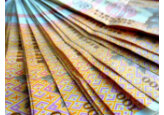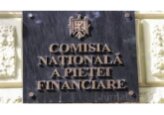
“Moldova has been hit hard by the war in Ukraine and global inflation, but it may become stronger after this crisis,” Expert Grup.
This opinion was expressed by the Executive Director of the Independent Analytical Center, Adrian Lupusor, in the article “Why should the EU not hesitate to grant Moldova the status of an EU candidate?”. The expert debunks the main myths about the Moldovan economy (“the Moldovan economy is so fragile and prone to shocks, and can collapse at any moment”, “the Moldovan economy will not withstand the shock caused by the war in Ukraine and global inflation”, “Moldova has huge country risks and is not a reliable debtor”, “Moldova has an almost collapsed economy, and its GDP per capita is the lowest in Europe”), citing specific arguments and facts. Lupusor believes that inflation, which is the most acute economic and social problem in 2022, is caused primarily by supply factors (a sharp jump in world prices for energy and food, rising logistics costs, reduced imports), and not by monetary factors. This means that this problem will not last long and will most likely begin to dissipate in the second half of the year and in 2023. The crisis, according to Lupusor, has triggered high-level political discussions about unfair competition, corporate governance and pricing transparency, which provide anomalous high margins for some manufacturers, sellers and intermediaries. “Trade disruptions will motivate exporters to reorient themselves towards the EU and other markets, and this will encourage investment in improving the quality and productivity of production (similar to other trade shocks that Moldova has managed to cope with). An increase in import prices will create the effect of partial import substitution due to an increase in domestic production (mainly food and textiles). Rising energy prices will create strong incentives for investment in renewable energy and will encourage reforms to improve energy security. The increase in the budget deficit under the current program with the IMF will stimulate the government to improve the efficiency of public spending, especially in the sectors of social protection, health and education, which consume most of the state budget. In addition, a decrease in investor confidence will lead to the launch of state programs to support domestic investment and the creation of additional incentives to attract foreign investment, especially taking into account Moldova's obligations to implement the Association Agreement with the EU, the terms of the Memorandum with the IMF and other obligations to development partners," - says the expert. At the same time, Lupusor pointed to three main preconditions that will ensure the ability of the Moldovan economy to overcome the crisis and lay the foundation for a sustainable recovery. These include: access to external financial assistance to support an expansionary fiscal policy; access to external markets, which will allow a quick reorientation and, therefore, mitigate the shock of trade distortions; technical and political support from development partners to advance structural reforms. // 07.06.2022 — InfoMarket







